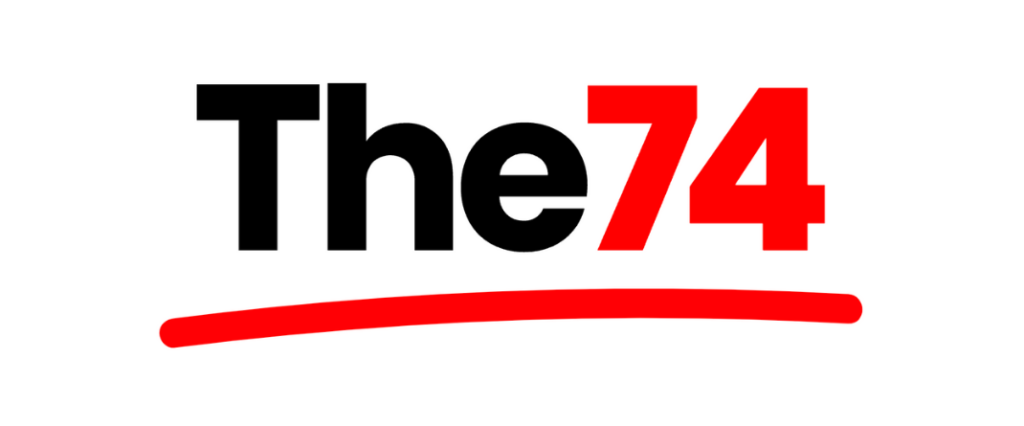Student Re-Engagement
For children and families living in communities most affected by gun violence in America, consistent exposure to violence and trauma can be detrimental to their mental health, emotional development, and academic engagement, resulting in students becoming disconnected from school. Recent research suggests providing wraparound behavioral and mental health supports can help decrease violence involvement and increase academic re-engagement.
Students who are disconnected from school are disproportionately vulnerable to gun violence and the resulting trauma. In Chicago, more than 90% of youth shooting victims are not enrolled in school at the time of victimization.
There is a dearth of programming for youth who are no longer consistently attending school and those who are already interacting with the justice system. To address this challenge, the Education Lab works with school communities to reach youth who have become disengaged from school, reconnect them to school programming, and ensure they have the trauma-informed supports needed to thrive. These programs, based on behavioral science-informed interventions, seek to give young people additional tools to navigate their difficult environments — return a sense of safety, slow down their decision-making processes, and increase their social-emotional skillset. We also use data to improve how public schools serve students facing significant barriers to completing a high school education by designing and testing innovative programs and policies that can support students at scale.
Our evaluation of Choose to Change (C2C) showed that in the year after the program’s start, participating youth attended an additional seven days of school compared to their peers.
After the start of the program, C2C youth had 48 percent fewer violent-crime arrests. This positive impact persisted for over 1.5 years.
Back to Our Future (B2OF)
Back to Our Future (B2OF) is a state-funded, district-led, evidence-informed effort to re-engage disconnected students at an elevated risk for gun violence involvement.
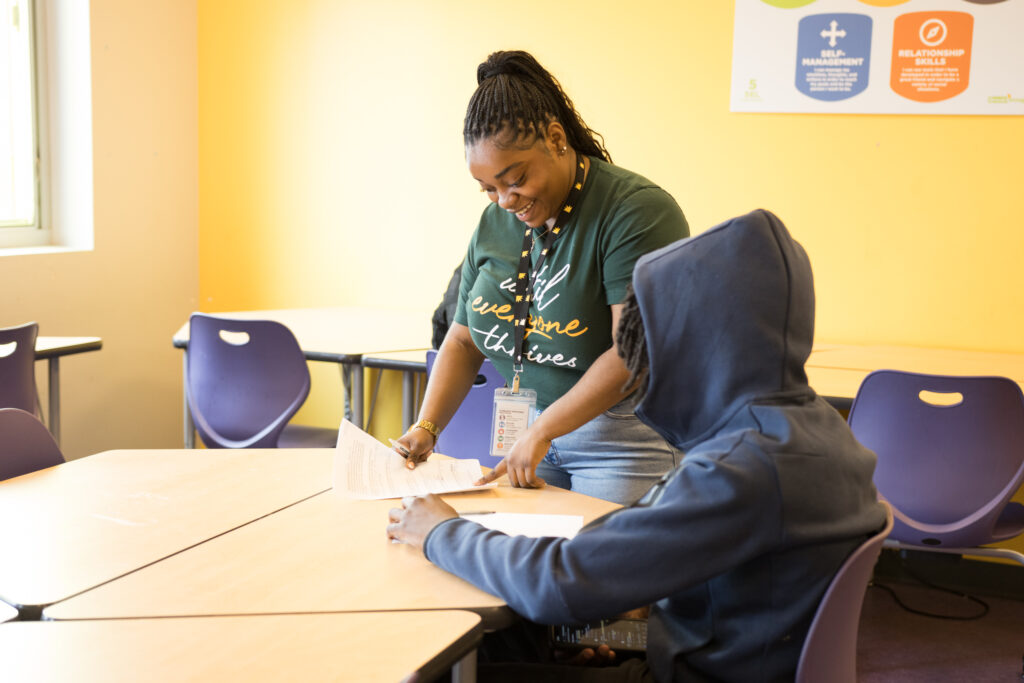
Youth Advocate Programs
The Crime Lab and Education Lab, in partnership with Youth Advocate Programs, Inc. (YAP), conducted a randomized controlled trial of YAP’s wraparound advocacy services to evaluate the program’s impact on youth academic outcomes and violence engagement outcomes.
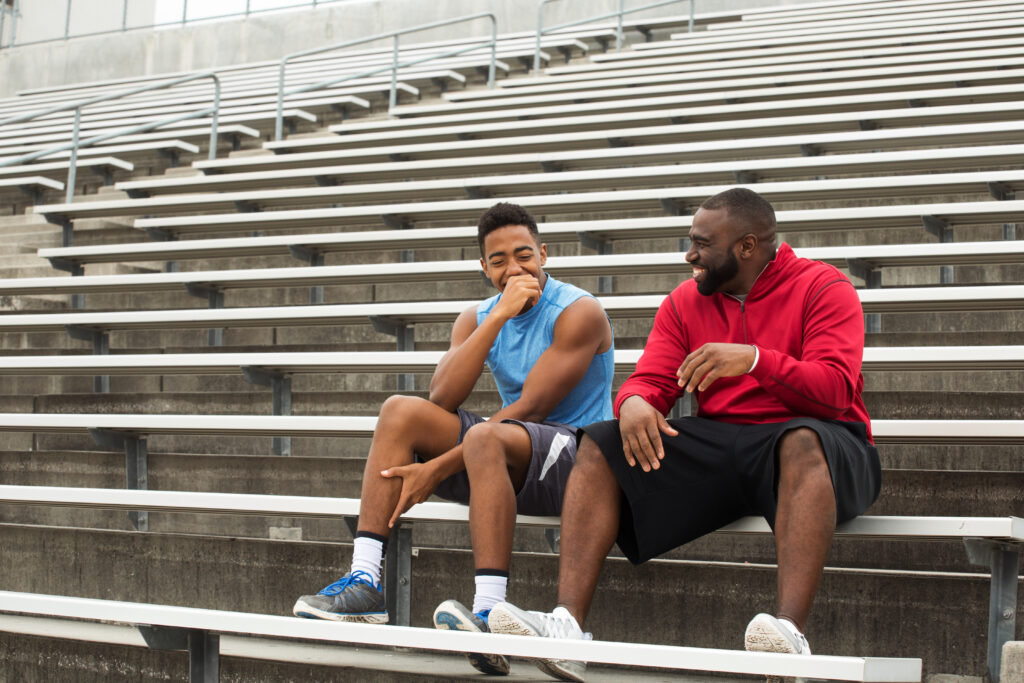
Embedded Analysts
The Education Lab provides technical assistance to support Chicago Public Schools in using data analysis to answer key questions and guide daily decisions.

High School Transitions
At the request of Chicago Public Schools, the Education Lab conducted the High School Transitions project, which leveraged predictive analytics to identify students at risk of dropping out of high school as early as 7th grade and paired them with a summer enrichment program to help them get back on track.
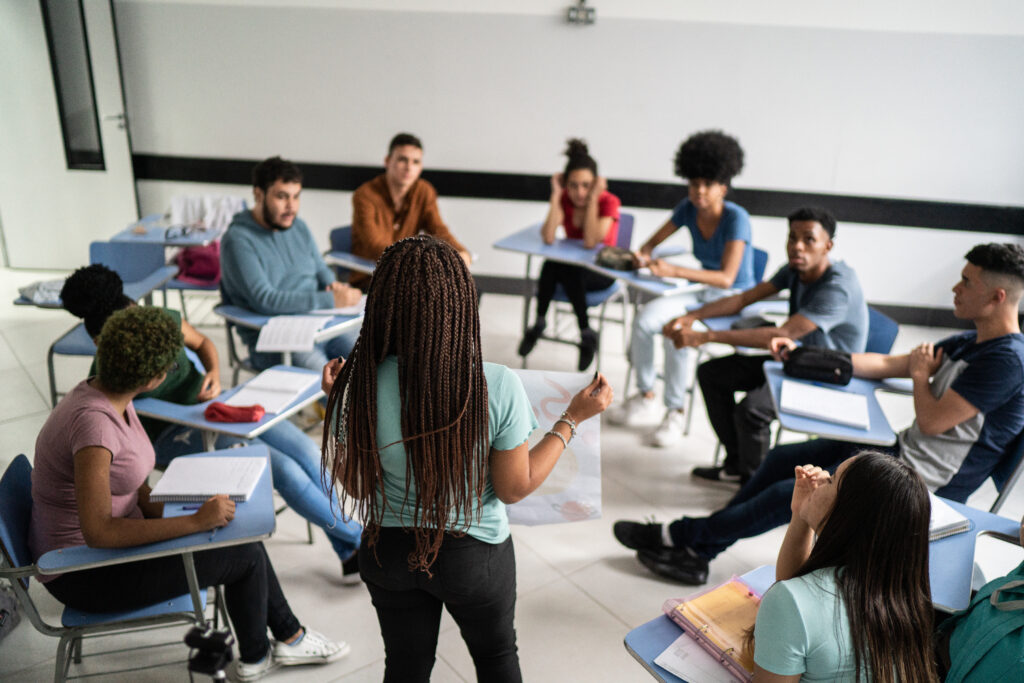

Connect & Redirect to Respect: Final Report
Report on Connect & Redirect to Respect
Latest Updates
A Promising Start for Personalized Learning in Miami-Dade
Griffin Catalyst highlights its three-year gift to the Education Lab to bring an innovative, high-dosage, math tutoring initiative to middle schools in Miami-Dade County to support and accelerate student learning in the wake of the COVID-19 pandemic. Initial results from the program are promising, suggesting that this approach can help tackle learning loss and enable students to catch up to grade level.
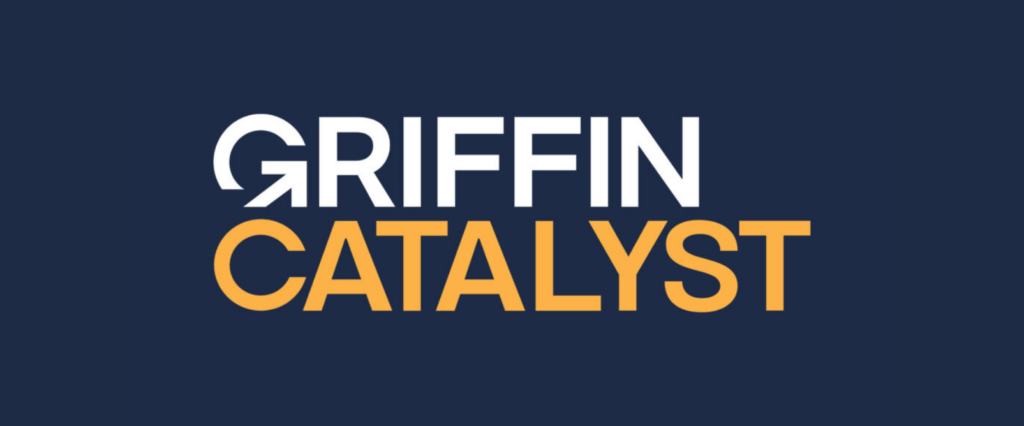
Why tutoring is a logistics problem worth solving
The National Student Support Accelerator’s (NSSA) Susanna Loeb and the Education Lab’s Monica Bhatt highlight the ways districts can stay the course on using high-dosage tutoring as a research-backed lever for strengthening teaching and learning.

Months After Deep Cuts, Education Researchers See Reason for Cautious Optimism
In a recent piece from The 74 Media’s Greg Toppo, Education Lab Senior Research Director Monica Bhatt discusses why continued investment in education R&D matters: To drive better outcomes for students and to strengthen America’s global competitiveness.
